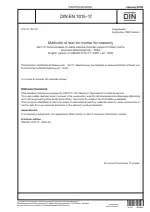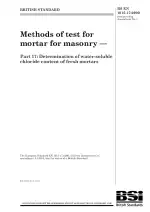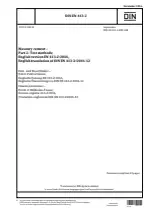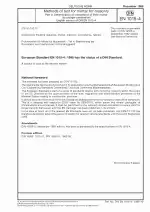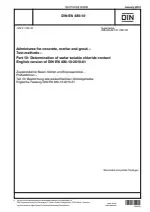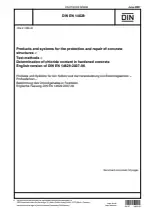Methods of test for mortar for masonry - Part 17: Determination of water-soluble chloride content of fresh mortars
Also Known As:
The DIN EN 1015-17 standard provides guidelines for measuring the water-soluble chloride content in freshly mixed mortars. The standard aims to ensure that the chloride content in mortar does not exceed certain limits, as excessive chloride can lead to corrosion of steel reinforcement in masonry structures.
The standard outlines a specific testing procedure for determining the water-soluble chloride content of fresh mortars. This involves taking a sample of the mortar, extracting the water-soluble chloride ions through a leaching process, and measuring the concentration of chlorides in the extracted solution. The concentration of chloride ions is typically determined using ion chromatography or other suitable analytical methods.
Compliance with this standard helps to assess the quality and suitability of mortar for masonry applications. It ensures that the chloride content is within acceptable limits to prevent potential corrosion and structural damage. The standard provides a standardized and reliable method for measuring the water-soluble chloride content, allowing for consistent testing and comparison of different mortar samples.
| Descriptors | Ammonium, Cement mortar, Chloride content, Chlorides, Construction, Construction materials, Content, Determination of content, Fresh mortar, Fundamental quantity, Hardened mortars, Iron, Lime, Masonry, Mortar composition, Mortars, Sampling methods, Silver nitrate, Soluble, Sulphates, Testing, Water |
| ICS Codes | 91.100.10 - Cement. Gypsum. Lime. Mortar |
| Language(s) | English |
| File Size | 512.0 KB |

